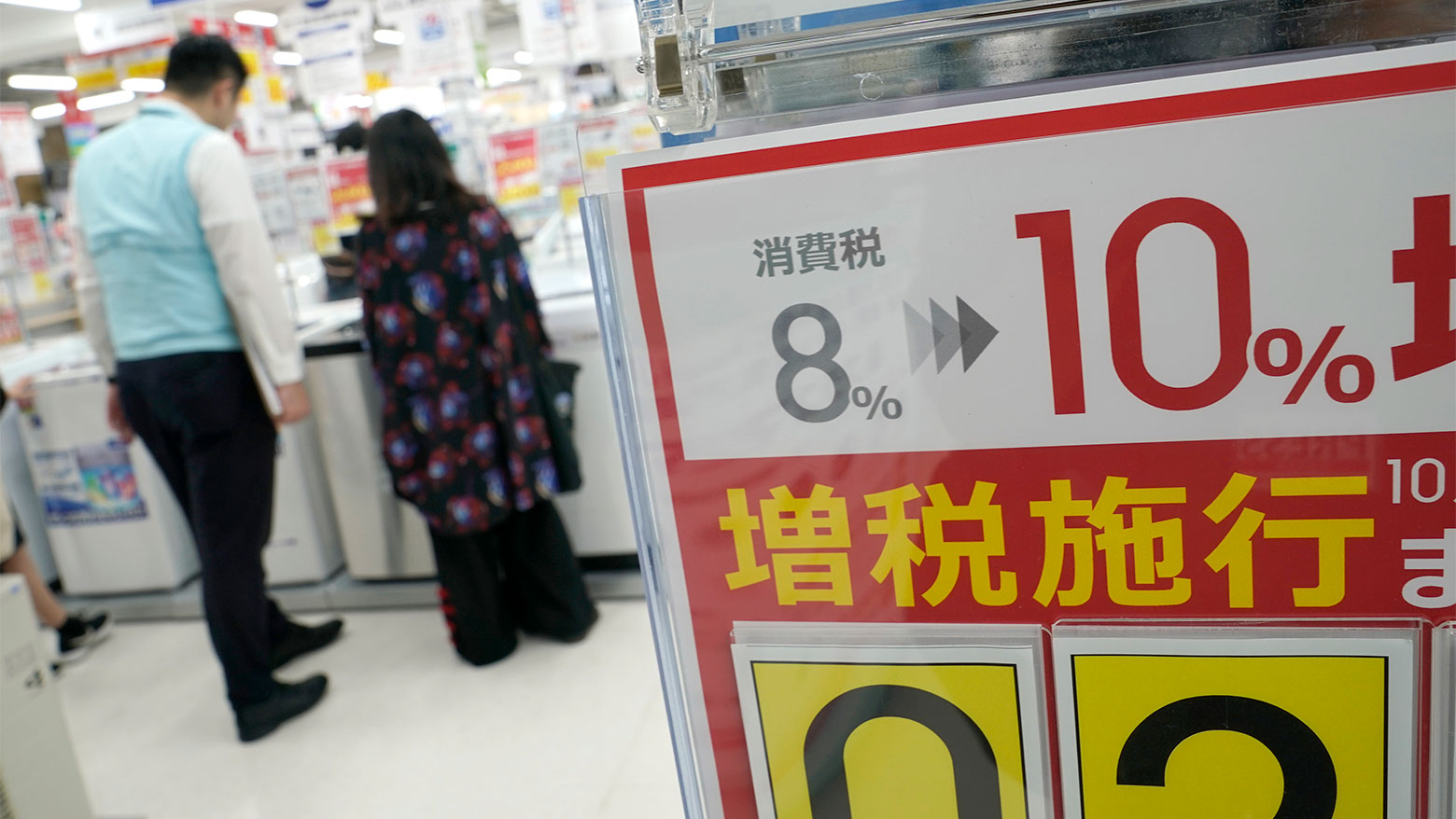When the consumption tax was raised from 5% to 8% in April 2014, the timing appeared to be fairly good, if not perfect, at least at first. The Bank of Japan had started its aggressive monetary easing a year before, and businesses and investors were relatively upbeat about the economy. Companies enjoyed bigger profits thanks to a cheaper yen, and wages had increased. The global economy was also doing well, with the US expanding, Europe somewhat picking up, and China recording more than 7 percent growth.
When the Japanese government asked 60 economists whether they thought a tax hike at that timing was appropriate, many were more than enthusiastic. Some of them even answered, “If not now, when?” Only a few opposed it.
But the tax hike's negative effects were difficult to overcome. The country suffered a 7 percent negative growth in the April to June quarter just after the last tax increase. People spent too much ahead of it, and it took three years for personal spending to recover.

Now, rough seas are ahead as Japan prepares to increase its consumption tax rate from 8 percent to 10. The global economy is decelerating on the back of intensifying US-China trade tensions. The Chinese economy only grew 6.2 percent in the recent quarter, the slowest in 27 years. Germany is experiencing negative growth. And Japanese manufacturers’ capital spending is decreasing. The BOJ Tankan survey scheduled to be released on the same day as the consumption tax hike is forecast to show that business sentiment is weakening.
The government has learned from the past, and has introduced a reward points system for consumers making cashless payments at small and mid-sized businesses. It’s offering free childcare and education services for all families with children ages 3 to 5. It hopes these measures can mitigate the negative impact of the tax hike.
In addition, the Bank of Japan says that it will closely examine recent economic conditions and price moves at the next monetary policy meeting scheduled for the end of October. Prime Minister Abe has also implied that he will take necessary steps, including a possible fiscal stimulus, if the economy starts to weaken.
Will Japan manage to navigate the rough waters? We will soon see.

